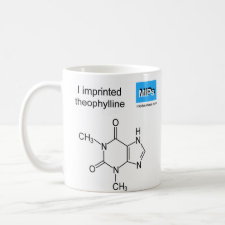
Authors: Li Z, Day M, Ding JF, Faid K
Article Title: Synthesis and characterization of functional methacrylate copolymers and their application in molecular imprinting.
Publication date: 2005
Journal: Macromolecules
Volume: 38
Issue: (7)
Page numbers: 2620-2625.
DOI: 10.1021/ma0478308
Abstract: Novel molecularly imprinted polymer systems have been designed that incorporate in a preformed polymer both specific recognition functions and cross-linkable groups. Copolymers of 2-methacryloylethyl methacrylate and methacrylic acid P(MAEMA- co-MAA) with different compositions have been synthesized and characterized. The living free radical polymerization of 2- (trimethylsilyloxy)ethyl methacrylate (HEMA-TMS) and tert-butyl methacrylate (tBMA) with different monomer feed ratios gives a series of random copolymers. These materials can then be further functionalized by methacryloylation of the pendant hydroxyl group and acid hydrolysis of tert-butyl groups. The resultant copolymers were characterized by H-1 NMR, FT-IR, DSC, and TGA. These copolymers can then be imprinted with a variety of chemical templates possessing complementary functionalities, forming strong noncovalent and specific binding interactions. These polymer-template matrices can then be readily cross- linked by appropriate posttreatment, such as irradiation or heating in the presence of initiators, either in the bulk or as a film deposited on a suitable substrate, to lock the recognition cavities. The templates can then be removed by thorough washing. Preliminary experiments reported here show that these copolymers are highly selective MIPs toward theophylline in comparison to comparable molecules with similar chemical structures such as caffeine and theobromine
Template and target information: theophylline



Join the Society for Molecular Imprinting

New items RSS feed
Sign-up for e-mail updates:
Choose between receiving an occasional newsletter or more frequent e-mail alerts.
Click here to go to the sign-up page.
Is your name elemental or peptidic? Enter your name and find out by clicking either of the buttons below!
Other products you may like:
 MIPdatabase
MIPdatabase









